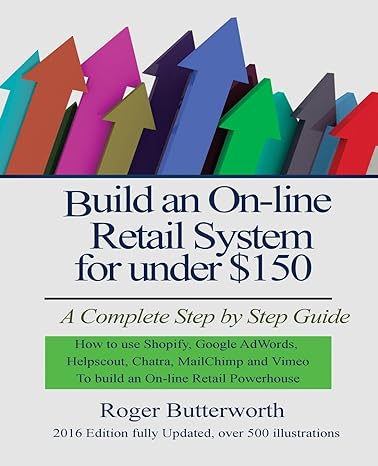Question
Use the following Information to Answer Problems 1 and 2 Bradford Services Inc. (BSI) is considering a project that has a cost of $10 million
Use the following Information to Answer Problems 1 and 2
| Bradford Services Inc. (BSI) is considering a project that has a cost of $10 million and an expected life of 3 years. There is a 30 percent probability of good conditions, in which case the project will provide a cash flow of $9 million at the end of each year for 3 years. There is a 40 percent probability of medium conditions, in which case the annual cash flows will be $4 million, and there is a 30 percent probability of bad conditions and a cash flow of -$1 million per year. BSI uses a 12 percent cost of capital to evaluate projects like this. | |
Problem 1: Find the projects expected cashflow and NPV
| Condition | Probability | Cash Flow | Prob.*Cash Flow |
| Good | 0.3 | $9 |
|
| Medium | 0.4 | $4 |
|
| Bad | 0.3 | -$1 |
|
|
|
| Expected CF |
|
| Expected CF =
|
|
| T=0 | T=1 | T=2 | T=3 |
| CF |
|
|
|
|
| NPV of Project =
|
| What can you conclude regarding this project?
|
Problem 2: find the projects standard deviation and coefficient variation?
| Condition | Probability | NPV |
| Good | 0.3 |
|
| Medium | 0.4 |
|
| Bad | 0.3 |
|
|
| Expected NPV |
|
NPV of Project in Good Condition =
NPV of Project in Average Condition =
NPV of Project in Bad Condition =
| Variance = |
| Coefficient Variation =
|
| Now suppose the original project could be delayed a year. All the cash flows would remain unchanged, but information obtained during that year would tell the company exactly which set of demand conditions existed. The cash flow and the cost of project will be shifted one year and the project will be implement only if we are in good condition. Estimate the value of the project if it is delayed by 1 year. The risk-free rate is 6% and the cost of capital is 12% | |||||||||||||||||||||||||||||||||||||||||||||||||||||||||||||||||||||||||||||||||||||||||||||||||||||||||||||||||||||||||||||||||
|
Problem 3: Using Decision Tree to estimate the value of real option (Option to wait one year and implement only if the demand is good)
A) What is the expected NPV of project if wait one year and implement only if the demand is good?
B) What is the standard deviation of projects NPV?
C) What is the Coefficient Variation of the project?
Problem 4: Using the information above and Black Scholes to estimate the value of real option (Option to wait one year) P = PV of all projects future expected cash flows P does not include the project cost Step 1: Find the PV of future CFs at the options exercise year.
PV of CF at the option exercise year for Good Condition
PV of CF at the option exercise year for Medium Condition
PV of CF at the option exercise year for Bad Condition
Step 2: Find the expected PV at the current date year 0
Expected PV @ T =1
Expect PV @ T = 0
Estimate Variance using the Direct Approach
Return for High State =
Return for Average State =
Return for Low State
Expected Return =
Variance of return =
Determine the value of real option using Black Scholes by using the variance based on the direct Estimate
V = P[N(d1)]-Xe-rf(t)[N(d2)] d1 = [ln(P/X)+[(Rf+s2/2)](t)]/st d2 = d1-st
D1 =
D2 =
N(d1) =
N(d2) =
V =
|
Step by Step Solution
There are 3 Steps involved in it
Step: 1

Get Instant Access to Expert-Tailored Solutions
See step-by-step solutions with expert insights and AI powered tools for academic success
Step: 2

Step: 3

Ace Your Homework with AI
Get the answers you need in no time with our AI-driven, step-by-step assistance
Get Started


